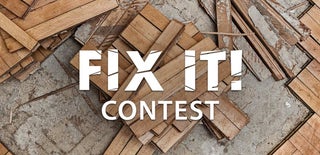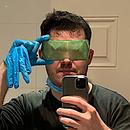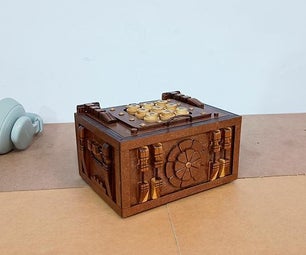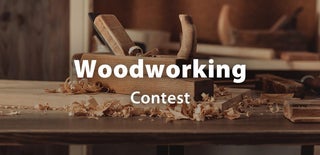Introduction: Wardrobe Rail Bracket
Recently functional 3d printing helped us to avert a wardrobe disaster. One of the brackets holding a hanging rail broke sending all dresses down in a messy pile. We figured that it would be possible to 3D design and 3D print the bracket. During designing stage, the bracket received an upgrade, acquiring more strength and depth to support the rail.
Step 1: Measurements
Caliper: Of course, the first thing we did was take the measurements of the broken piece.
Step 2: 3D Designing in Tinkercad
It could be quite a lengthy exercise to describe every step in detail. Instead, we have put together a short video where the model is constructed out of basic blocks. Please pause when necessary. There was no need for a sketch prior to designing as the broken piece was right in front of us.
Step 3: Positioning in Simplify3D Slicer
Simplify3D has an awesome function “Place Surface On Bed” that helped us to put the object on its side. We altered a few automatically generated supports to make sure there would be no problem with support removing and post-processing. Why should it be printed in this position? Our model must be able to hold a massive weight, with the main tension directed at the side of the bracket. If printed upright, the layers would be placed in the same direction as the main tension from the rail. The end result can be prone to breaking. When the bracket is 3D printed on the side, with the layers placed continually in the direction, opposite to the tension point, it will strengthen the model.
Learn more about support settings in Simplify3D, Cura, and PrusaSlicer software in my blog.
Step 4: Before - After
We chose to print in ABS as ABS filament is stronger than PLA and this object has a serious task – to hold all valuables on the rail. In particularly this case, however, we think that PLA could work as well. Our item is twice bigger than the original and is quite strong. Even though an experienced eye may notice a low-poly texture of the object, the carefully chosen colour makes the end result look authentic.Yet again, we are happy to prove that domestic desktop 3D printer can be used not only for trinkets or art objects, but also for something functional.
Check other useful 3D prints in my Functional 3D Printing blog.

Participated in the
Fix It! Contest











